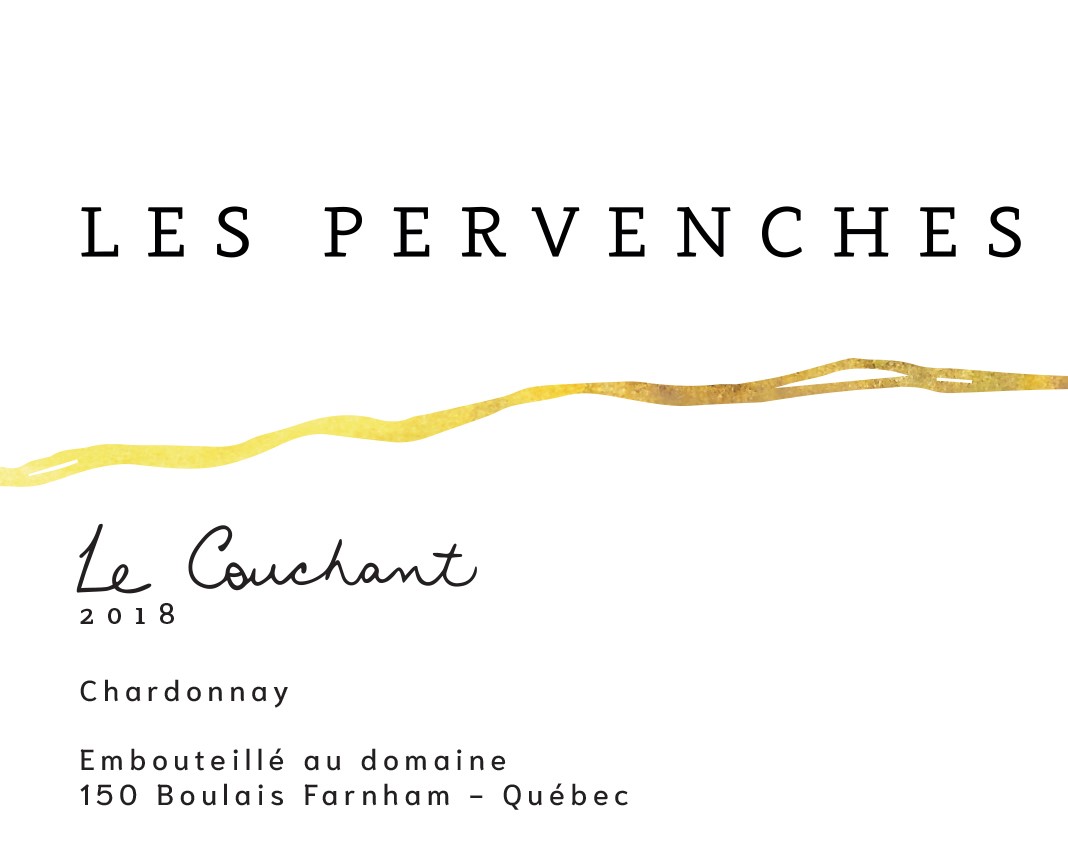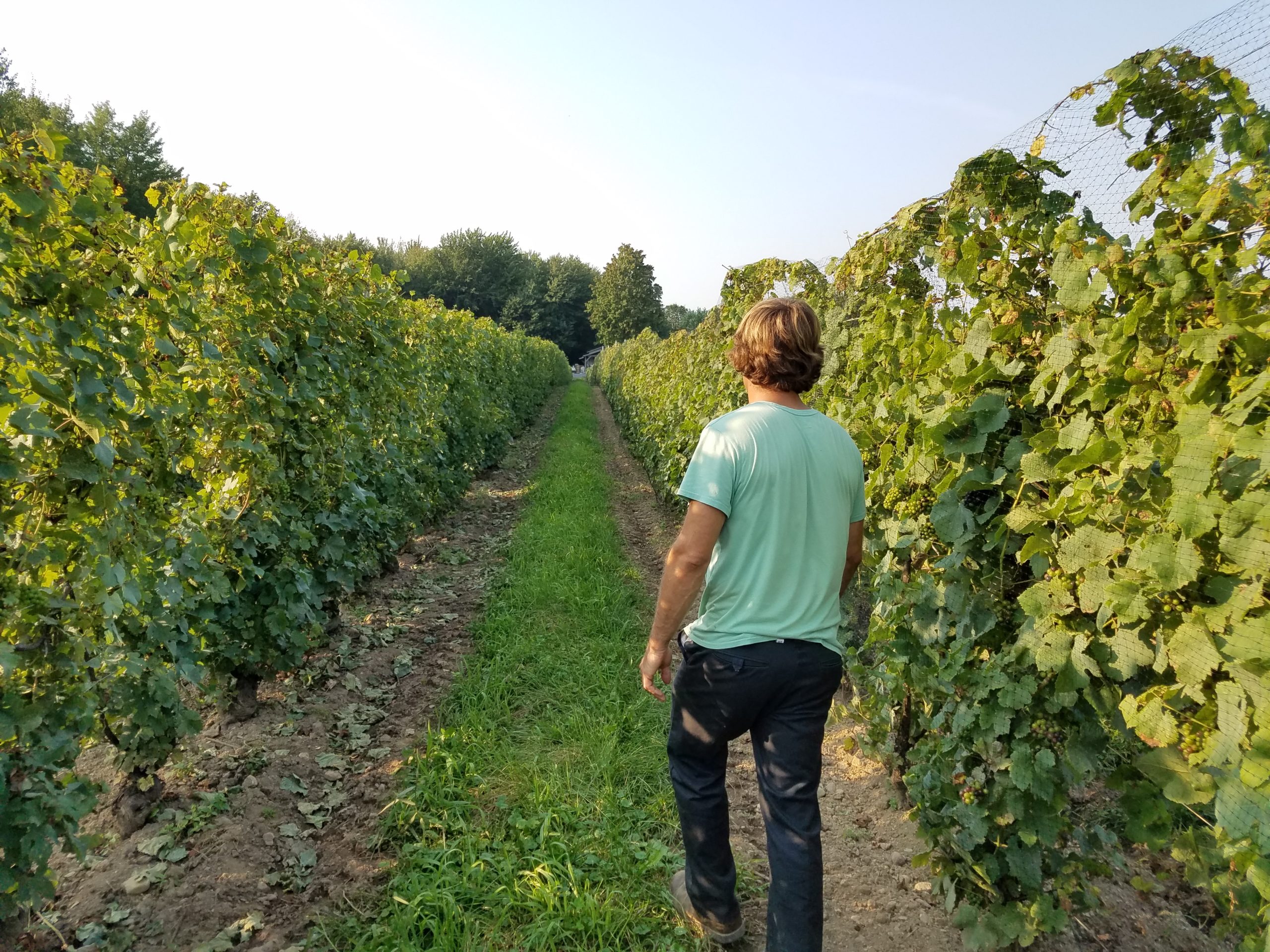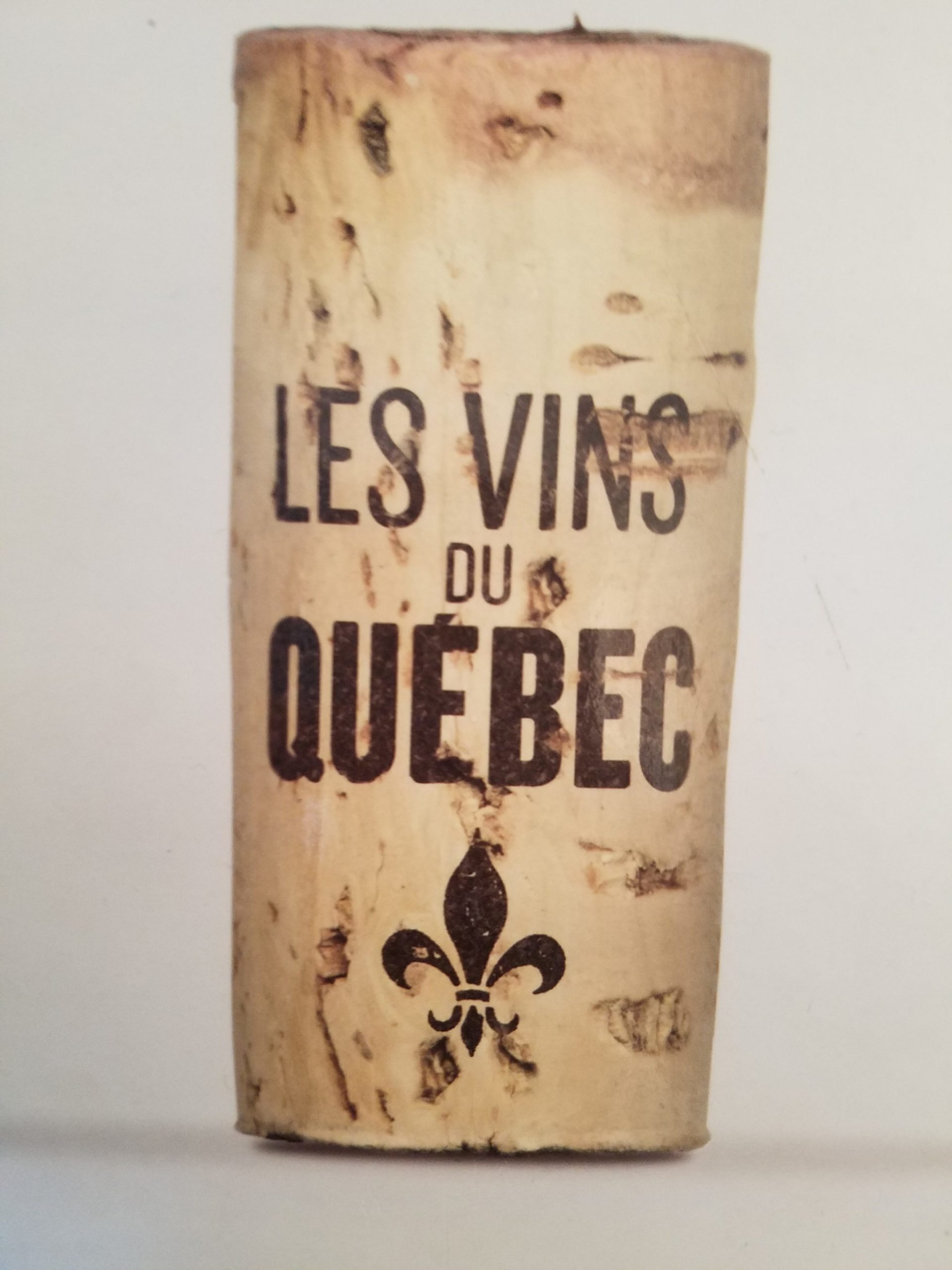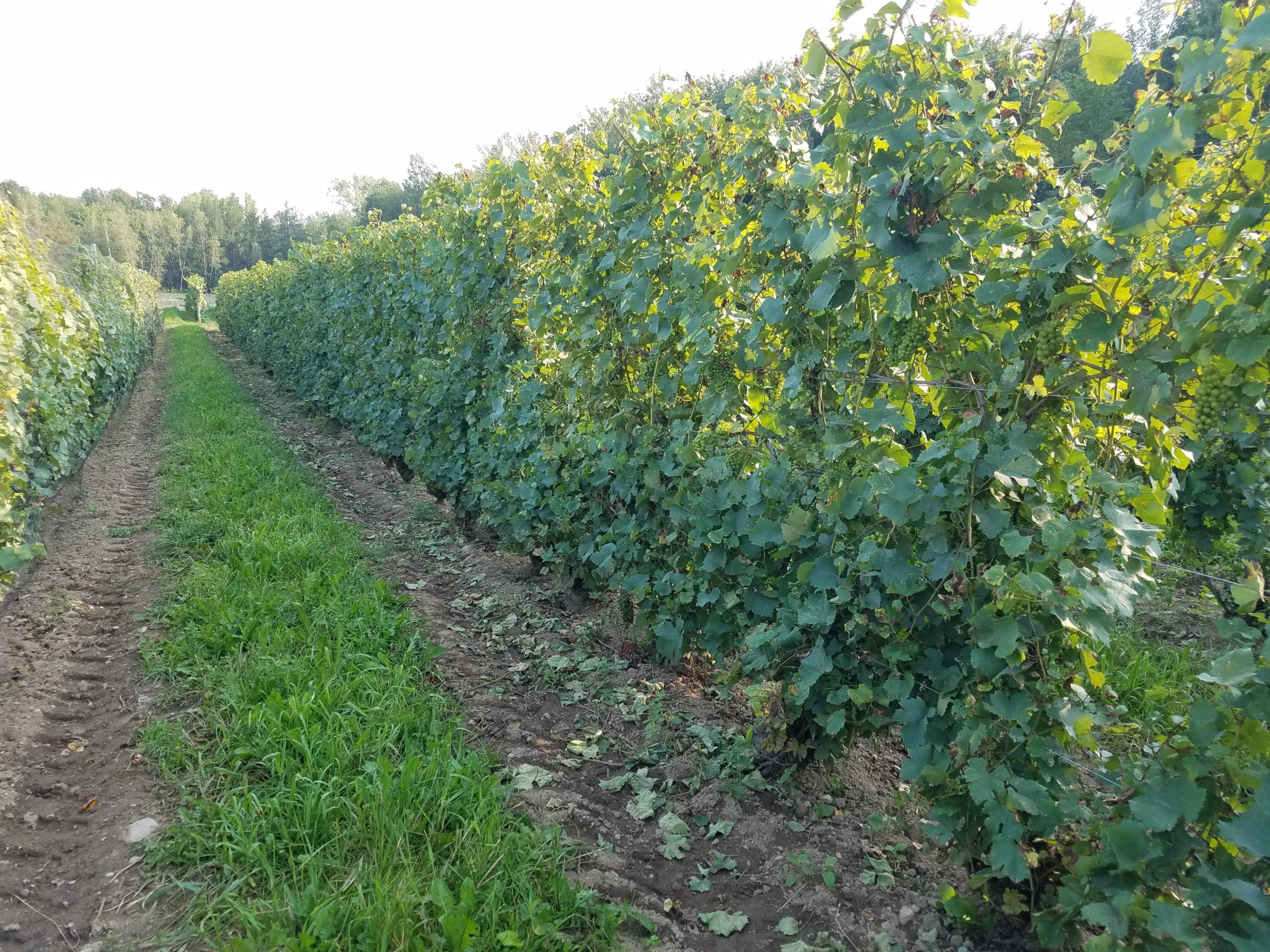It took me three damn years to convince Mike and Véronique at Les Pervenches to sell me some wine, so beloved are they by the Montreal food and wine scene.
And rightly so: Les Pervenches occupies a rarefied and hallowed space there.
They are both the DRC and the Stefan Vetter of Quebec; which is to say that they are the blue-chip, benchmark estate by which everyone else is measured, while simultaneously being the avant garde, pushing the boundaries and discovering the potential of the terroir here. (In a region as young as this, you can wear many hats.)
Not only has Les Pervenches been growing grapes and making wines in this boundary region of viticulture for over 20 years (which is to say about 15 years before anyone else), they have been working organically and biodynamically for well over a decade. I feel like it’s important to provide context and re-emphasize this point: In an area that sees quite a bit of rain and fungal pressure, that deals with extreme temperatures (negative 3 degrees Celsius in September anyone?) and extreme diurnal swings the likes of which even those in the far north of Germany couldn’t fathom, Les Pervenches is doing more considered and rigorous viticulture than many (most?) vignerons working in climates much simpler and more welcoming.
Or, spoken plainly: Mike and Véronique are no ****ing joke and should get a golden star just for doing what they do in the vineyard.
They have, more or less singularly, led the group of young winemakers who are experimenting with both hybrid and vinifera vines, including Pinard et Filles (where Mike consulted on both the planting of the vineyards and helped establish the cellar methodology) and Domaine du Nival.
In the cellar, nearly every box on the “Natty Wine 101” check list is checked: natural fermentations, bottling unfined and unfiltered, minimal use of sulfur. Yet, for all this, the wines flaunt a profound purity. Les Pervenches is, somehow, making some of the most subtly complex wines I have ever had: intricate puzzles etched on the head of a pin. As I wrote in my essay about understanding Quebec wines: “Be warned: These are not slap-you-upside-the-head-they-are-so-extraverted type wines. These wines are in many ways so subtle I think it’s easy to overlook them. But for those among us willing to pay a bit more attention… they are a revelation. They seem to me able to have a dialogue with any of the great wines of the ‘old world,’ relating most obviously to the cooler climates of Europe. The best of them feel as if they were made in an ancient European winemaking tradition that doesn’t exist: Chablis dropped in the coolest vineyards of the Saar?”
Yet, as easily as these wines could find the famous terroirs of Europe in their family tree, there is also something very palpably different. Les Pervenches dotes on both their vinifera and hybrid vines; it does not seem to me they value one higher than the other. Perhaps some of this difference is the hybrids speaking their language, swaying their vinifera counterparts to get a bit rowdy by some means of plant communication we don’t yet understand. Perhaps the difference is due to a farming and cellar culture that sprung ex nihilo, taking full and wise advantage of the geographical isolation as a means of creating and maintaining freedom.
From where or why or how this unique-ness comes about, I don’t know, but I do feel it, profoundly. I’m not sure of a lot of things (doubting and worrying are among my chief talents), yet I am very confident that in another decade, the wines of Les Pervenches will be widely known and widely respected, and the story of Quebec wines will be a narrative that many people are interested in.




